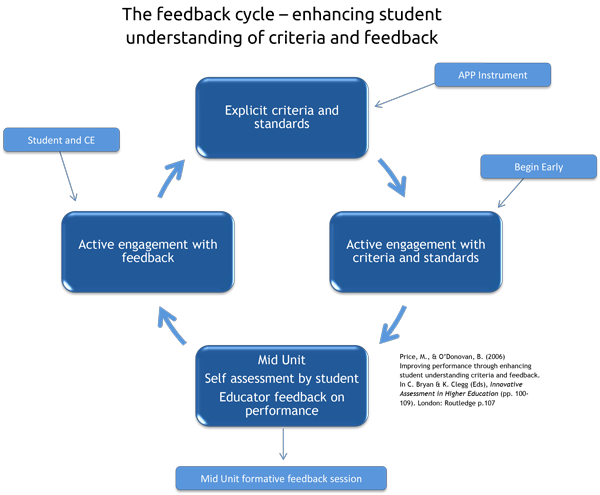Types of Assessment

Important types of clinical assessment are 1) formative and 2) summative with feedback and reflection being the key components to achieving effective assessment.
- Aiding learning
(formative assessment) - Certifying achievement
(summative assessment)
Formative Assessment
Formative assessment in clinical education is designed to help students understand how they are progressing. It is provided regularly during a clinical unit but does not count toward the final grade or unit mark.
Formative Self-Assessment (by Student)
Unless students develop the capacity to make judgments about their own learning they cannot be effective learners now or in the future. Active student involvement in understanding assessment processes and contributing to them is essential.
To foster active involvement, students are to be encouraged to ‘self-assess’ using the APP and discuss discrepancies and similarities compared to the assessment by the clinical educator. Observation of differences provides opportunities for discussion and a path towards consensus about specific expectations and strategies for achieving this. Observation of similarities gives the educator an opportunity to affirm what the student is doing well, an important part of feedback often missed.
Summative Assessment
Summative assessment focuses on the ‘whole’ of the student’s performance, that is, the extent to which each criteria / learning objective has been met overall for the clinical unit/subject.
Summative assessment provides the student with a grade for the unit/subject or placement that contributes to their academic record. APP summative assessment usually takes place towards the end of the placement. Its purpose is to rate the level of achievement reached on completion of the unit. When finalising a student’s clinical assessment, assessors may draw on the experience of colleagues who have also supervised or supported the student.